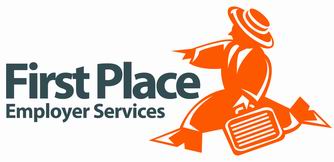Our team of advisors have been lucky enough to work in the PEO industry for a number of years. We are a team of HR professionals, insurance professionals and client evangelists. We strive to help our client's and their friends focus on the business of business,rather than the busy-ness of business.
We wanted to begin a series of Blog posts answering the questions of, What is a PEO? and the benefits surrounding the PEO concept.In future posts we will attempt to address the advantages of outsourcing your non-profit generating activities to a PEO, the types of businesses that are a great fir for a PEO and how a PEO helps you, the business owmer control costs, amongst others.
As always, if you have a question you can reach a trusted advisor by calling 877-634-7787 and we will be honored to help you. Now on to the blog.
A PEO defined: The National Association of Professional E,mployer Organizations define a PEO as
Professional employer organizations (PEOs) enable clients to cost-effectively outsource the management of human resources, employee benefits, payroll and workers' compensation. PEO clients focus on their core competencies to maintain and grow their bottom line.
Businesses today need help managing increasingly complex employee related matters such as health benefits, workers' compensation claims, payroll, payroll tax compliance, and unemployment insurance claims. They contract with a PEO to assume these responsibilities and provide expertise in human resources management. This allows the PEO client to concentrate on the operational and revenue-producing side of its operations.
A PEO provides integrated services to effectively manage critical human resource responsibilities and employer risks for clients. A PEO delivers these services by establishing and maintaining an employer relationship with the employees at the client's worksite and by contractually assuming certain employer rights, responsibilities, and risk.
That being said, here at we like to offer this as a perspective:
Outsourcing — the practice of using outside firms to handle work normally performed within a company — is a familiar concept to many entrepreneurs. Small companies routinely outsource their payroll processing, accounting, distribution, and many other important functions — often because they have no other choice. Many large companies turn to outsourcing to cut costs. In response, entire industries have evolved to serve companies' outsourcing needs.
But not many businesses thoroughly understand the benefits of outsourcing. It's true that outsourcing can save money, but that's not the only (or even the most important) reason to do it. As many firms discovered during the outsourcing "mania" of the early 1990s, outsourcing too much can be an even bigger mistake than not outsourcing any work at all. The flat economy caused many companies into huge layoffs and subsequently outsourced functions that were better kept in-house. Wise outsourcing, however, can provide a number of long-term benefits:
Control capital costs. Cost-cutting may not be the only reason to outsource, but it's certainly a major factor. Outsourcing converts fixed costs into variable costs, releases capital for investment elsewhere in your business, and allows you to avoid large expenditures in the early stages of your business. Outsourcing can also make your firm more attractive to investors, since you're able to pump more capital directly into revenue-producing activities.
Increase efficiency. Companies that do everything themselves have much higher research, development, marketing, and distribution expenses, all of which must be passed on to customers. An outside provider's cost structure and economy of scale can give your firm an important competitive advantage.
Reduce labor costs. Hiring and training staff for short-term or peripheral projects can be very expensive, and temporary employees don't always live up to your expectations. Outsourcing lets you focus your human resources where you need them most.
Start new projects quickly. A good outsourcing firm has the resources to start a project right away. Handling the same project in-house might involve taking weeks or months to hire the right people, train them, and provide the support they need. And if a project requires major capital investments (such as building a series of distribution centers), the startup process can be even more difficult.
Focus on your core business. Every business has limited resources, and every manager has limited time and attention. Outsourcing can help your business to shift its focus from peripheral activities toward work that serves the customer, and it can help managers set their priorities more clearly.
Level the playing field. Most small firms simply can't afford to match the in-house support services that larger companies maintain. Outsourcing can help small firms act "big" by giving them access to the same economies of scale, efficiency, and expertise that large companies enjoy.
Reduce risk. Every business investment carries a certain amount of risk. Markets, competition, government regulations, financial conditions, and technologies all change very quickly. Outsourcing providers assume and manage this risk for you, and they generally are much better at deciding how to avoid risk in their areas of expertise.
A tip of the hat to for that piece.
First Place Employer Services encompasses reaching the most compatible PEO's while ensuring accurate and fair quotes, assuring proper client and PEO
partnership.
Through our services, any company, in any industry, can streamline their
efforts, protect against unnecessary liabilities, provide Fortune 500 level
employee benefit packages, rest assured that government compliances are met,
reduce administrative costs, institute essential human capital programs, and
more. All of this without losing control of their business and their vision.



No comments:
Post a Comment